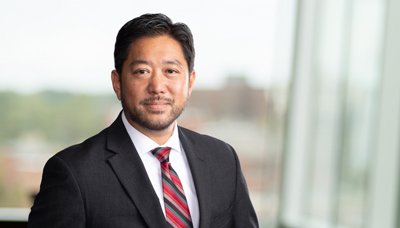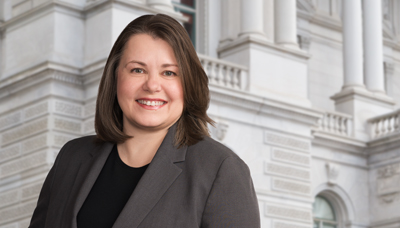On Oct. 21, the Ohio Supreme Court issued a decision regarding the dual intent doctrine, allowing employers to sleep just a little better at night. In Friebel v. Visiting Nurse Assn. of Mid-Ohio, Slip Opinion 2014-Ohio-4531, the court found that the doctrine of dual intent or dual purpose is not applicable when determining eligibility for workers’ compensation benefits in Ohio for injuries arising out of auto accidents.
Friebel was employed as a nurse by the Visiting Nurse Association of Mid-Ohio (VNA) to provide in-home health care services to clients. Friebel traveled to the homes of her patients and sometimes stopped at the VNA office for mail, supplies and meetings. On weekdays, Friebel was paid for travel time and mileage minus the time and distance it took to go to and from VNA’s office, regardless of whether she stopped there that day. When Friebel worked on weekends, she was compensated for travel time and mileage without any reduction.
In January 2011, on the way to her first patient’s home, Friebel decided to drive her daughter and son and two family friends to the mall. Before she was able to reach the mall and drop off her passengers, Friebel’s car was hit from behind. Friebel requested workers’ compensation for a neck sprain.
After several levels of administrative and judicial decisions, the state appeals court found that Friebel would not have been at the accident site if she had not been engaged in work duties as she was on her way to her patient’s home and that, therefore, she was entitled to benefits. The Ohio Supreme Court reversed this decision.
When an employee is injured while traveling for both business and personal purposes, some jurisdictions recognize a dual-intent or dual-purpose doctrine. The theory behind this doctrine is that if an employee’s work creates the need for travel, then the employee is acting in the course of employment while traveling, even if he or she does a personal errand. If the personal errand would have taken place absent the work reason for travel, then the travel is personal and is not taking place in the course of employment. Ohio has previously rejected this doctrine. Cardwell v. Indus. Comm., 155 Ohio St. 466, 99 N.E.2d 306 (1951).
In Freibel, however, the court took this rejection one step further and clarified that, even when the work creates the necessity for travel and the travel includes a personal purpose, workers’ compensation benefits are available only if the injury occurs in the course of, and arising from, the employment. The court explained that factors to consider for these types of cases are:
- Whether the time, place and circumstances of the injury demonstrate that it occurred in the course of the employment, and
- whether under the totality of the circumstances, there is sufficient causal connection between the injury and the employment to establish that the injury arose out of the employment.”
The court sent this case back to the trial court to determine facts still in dispute, such as whether Freibel had a fixed place of employment and whether she was traveling her normal route to the patient’s house.
Employers should scrutinize their employees’ car accidents to assure they were not engaged in a dual purpose at the time of their accident. It is also important to note that this dual intent/purpose doctrine only applies to employees who are traveling for work, and not to and from work. In Ohio, there are separate rules for employees who have a fixed place of employment and are injured in their drives to and from these locations.
For more information, please contact the Barnes & Thornburg Labor and Employment attorney with whom you work, or a leader of the firm’s Labor and Employment Department in the following offices:
Kenneth J. Yerkes
Department Chair
(317) 231-7513
John T.L. Koenig
Atlanta
(404) 264-4018
David B. Ritter
Chicago
(312) 214-4862
William A. Nolan
Columbus
(614) 628-1401
Mark S. Kittaka
Fort Wayne
(260) 425-4616
Robert W. Sikkel
Grand Rapids
616-742-3978
Peter A. Morse
Indianapolis
(317) 231-7794
Scott J. Witlin
Los Angeles
(310) 284-3777
Teresa L. Jakubowski
Washington, D.C.
(202) 371-6366
Janilyn Brouwer Daub
South Bend/Elkhart
(574) 237-1139
Visit us online at www.btlaw.com or @BTLawLE, and don’t forget to bookmark our blogs at www.btlaborelations.com and www.btcurrents.com.
© 2014 Barnes & Thornburg LLP. All Rights Reserved. This page, and all information on it, is proprietary and the property of Barnes & Thornburg LLP. It may not be reproduced, in any form, without the express written consent of Barnes & Thornburg LLP.
This Barnes & Thornburg LLP publication should not be construed as legal advice or legal opinion on any specific facts or circumstances. The contents are intended for general informational purposes only, and you are urged to consult your own lawyer on any specific legal questions you may have concerning your situation.























